The Project
Poverty,
Resource Equality and Social Policies
The economics of poverty in developed (rich) societies suffers from two
major shortcomings. First, the normative theory of poverty measurement
is not well connected to the other fields of welfare economics. Second,
poverty is always defined in the narrow terms of deprivation, lack of
resources, etc. This proposal aims at revisiting the economics of
poverty by using recent advances in welfare economics and behavioral
economics to solve those two shortcomings.
 Topic 1:
Poverty and Welfare economics Topic 1:
Poverty and Welfare economics
To recall, welfare economics is that part of normative economics that
is interested in more than efficiency. If one restricts her/his
attention to efficiency, then a recommendation to change a situation a
into a situation b only follows from all relevant parties preferring b
to a. Welfare economists deal with the conditions under which it is
possible to recommend, say, b over a even if some parties prefer b
whereas others prefer a. That requires justifying ways of trading off
between the gains of some agents and the losses of others.
Individual preferences are key ingredients in welfare economics, if not
the key ingredients. Indeed, efficiency remains one of the norms that
policy recommendations try to follow, and, moreover, all major notions
of individual welfare are consistent with how individuals themselves
rank the different alternatives.
The theory of poverty measurement is disconnected from the other fields
of welfare economics, as it does not take preferences into account.
This comes form the fact that individuals are characterized by a
one-dimensional parameter (income) in Sen (1976)’s seminal
contribution, which paved the way to the subsequent literature (this
literature is surveyed in Zheng (1997)). With only one dimension,
assuming that more is better is enough to make preferences irrelevant.
It was soon realized, however, that poverty is a multi-dimensional
phenomenon (see, for instance, Ravallion (1996)). Individual
preferences over the different components of one agent’s situation are,
therefore, a natural ingredient to take account of (a low housing
quality has a more drastic impact on the standard of living of someone
who hardly substitutes other goods for housing quality). Researchers
decided to ignore preferences, nonetheless, and faced the difficult
problem of aggregating deprivation in different dimensions, that is, of
comparing an agent poor in only one dimension with another agent poor
in only another dimension?
Equality
of opportunities
Welfare economics, on the other hand, ignored poverty, in the sense
that reducing poverty has never been analysed as a specific ethical
value that ought to be part of a general theory of social welfare. The
literature on social welfare functionals, for instance, which social
choice theorists call the theory of welfarism (see, for instance, the
survey by d’Aspremont Gevers (2002)), or the theory of fair allocation
(surveyed, for instance, by Moulin Thomson (1997) or Maniquet (1999))
never included in their framework the requirement that some welfare or
satisfaction level could be unacceptably low.
Optimal taxation theory has never been developed in models including a
poverty line under which it is unacceptable to let agents live (see
Diamond (1998) for a recent update of optimal taxation theory). Some
authors, however, have followed an objective of maximizing the minimal
income (see, for instance, Boadway Jacquet (2008)). It is clear that
the resulting taxation scheme is the most favourable to poor agents.
The drawback of that approach, nonetheless, is that it does not allow
us to combine poverty reduction with other desirable ethical objectives.
In the last two decades, a new approach to social welfare has been
developed, based on theories of equality of opportunities (the
literature is surveyed in Fleurbaey Maniquet (2009)). The key idea
underlying that approach is that inequalities are not necessarily
unjust. An intervention in the allocation of resources by a public
authority is justified only if it equalises the quantity of internal
and external resources to which agents have access to pursue their own
view of what is good for them. As a consequence, inequalities resulting
from differences in agents' preferences may be acceptable. According to
that approach, if an agent “chooses” to live below the poverty line,
social welfare may not be affected.
Objectives
The first objective of this research is to include economic poverty
theory into a larger theory of social welfare and make theories of
social welfare based on equality of opportunities incorporate the
ethical value of poverty reduction.
Poverty
Measurement
The first task consists in adding preferences in the framework of
poverty measurement theory. The immediate interest of doing so is that
the dimension aggregation problem is solved: agents evaluate the
different components of their situation by themselves, using their
preferences.
Having preferences in the framework, however, raises new difficulties.
First, it becomes natural to take Pareto efficiency considerations into
account: if all the poor agents find themselves better-off, why should
society claim that poverty has increased? With Pareto efficiency in the
picture, however, it is no longer clear how to conclude that a given
agent is poorer than another one: the classical theory based on the
concept of majorisation, following the idea that progressive transfers
among poor individuals decrease poverty (see, for instance, Tsui
(2002)), does no longer apply. The approach that we recently developed
with Marc Fleurbaey (see Fleurbaey and Maniquet (2010)) should be
adapted to the poverty measurement framework. That approach is based on
notions of progressive transfers that are compatible with Pareto
efficiency considerations.
It is worthwhile recalling here that one of the major results presented
in Fleurbaey Maniquet (2010) is that social welfare must be defined as
a maximin function of some individual well-being index. To recall,
maximin aggregators are those that give absolute priority to the
worst-off agents: between two resource allocations, the one that is
socially preferred is the one in which the lower well-being index is
larger. Of course, the individual well-being index need not be the
income, and is typically different from income (though it includes it).
Yet, the above approach can be seen as providing an ethical foundation
to the focus on the well-being of poor people in the definition and
application of notions of social welfare.
This part of the research should lead to the definition of new poverty
indices that take preferences into account. These indices will then be
applied to estimate the evolution of poverty in different contexts.
That requires using data bases that contain information on the
different dimensions of poverty (the basic ones being income, housing
and health), and information on preferences. The latter may come from
choices or from survey questions on subjective satisfaction.
Equality
of opportunities
The second task consists in revisiting optimal income taxation by
adding poverty reduction among the planner’s objectives. That requires,
first, to study possible definitions of the planner’s objective that
combine poverty reduction with the objective of letting people
responsible for their choices. There is a clear tension between these
two ethical principles. A first step consists in identifying the
possible coherent compromises between these two principles and justify
different social welfare functions consistent with these compromises. A
second step consists in analysing the optimal taxation schemes that
result from the maximisation of social welfare when information
asymmetry constraints are taken into account.
This part of the research should lead to the definition of criteria
that can be used to evaluate taxation schemes (labour income taxation,
commodity taxation, welfare benefits, health care systems, the funding
of schooling system, etc.). These criteria will then be applied to
evaluate current taxation schemes and propose fiscal reforms.
 Topic
2: A non-materialistic Definition of Persistent Poverty Topic
2: A non-materialistic Definition of Persistent Poverty
The second major shortcoming of the economics of poverty is related to
its definition of poverty. Poverty, indeed, is typically defined in
terms of deprivation, lack of income, or lack of some material
resources. A lot has been recently learnt about the lives of poor
agents in terms of material conditions (see, for instance, Banerjee
Duflo (2007)). This is not sufficient, though.
The puzzle
of Persistent Poverty
A conceptual point may be useful. Researchers often distinguish between
two populations of poor people. The first population is composed of
households whose standard of living varies, and who, as a function of
external circumstances (such as unemployment or illness), temporarily
experience a situation of poverty. The second population is composed of
households who persistently experience poor conditions of living. Some
researchers call it extreme poverty, chronic poverty, others hardcore
poverty, etc. The part of this proposal presented above is mostly
relevant for the first population. The part of this proposal presented
below is mostly relevant for the second population.
One of the main scientific puzzles regarding extreme poverty is that it
seems to be persistent even in developed societies having implemented
policies dedicated to eradicate it. The World Bank, in the World
Development Report 2004, gathered analysis aiming at understanding why
extreme poverty is so difficult to eradicate. The main conclusion of
the report, entitled “Making services work for poor people,” is that
services designed to help poor people escape from poverty typically
fail the poor. In some cases, the poor people are simply not reached by
the policy. In other cases, the quantity and/or quality of the service
is lower when addressed to poor people than when addressed to other
people. Understanding what is wrong with anti-poverty policies remains
a key question of the economics of poverty.
The Need for
new Evidences
On the other hand, several researchers studying extreme poverty have
concluded that statistical surveys fail to reach these people (see, for
instance, Despouy (1996) or Pogge and Reddy (2010)). The main reason is
that homeless people, nomads, inhabitants of shanty towns are typically
not contacted by the surveyors and inevitably underrepresented in such
surveys.
That does not mean, fortunately, that nothing is known about that
population. One source of information is composed of family monographs
written by volunteers of the International Movement ATD Fourth World.
Some of these monographs have been published, some others are
accessible from the staff of that Movement. They are summarized in
publications dedicated to the scientific community or to a general
audience. The following paragraphs heavily draws from Godinot and Wodon
(2006), gathering chapters written by researchers, ATD Movement staff
members, and containing testimonies by volunteers and poor people
themselves. Here are three quotations that allow us to enrich our
definition of poverty.
Joseph Wresinsky, founder of ATD Fourth World, has spent about forty
years among extremely poor families. In a speech at UNESCO, he said:
“Those who think that human beings reduced to total poverty are
apathetic and consequently don’t think, that they retreat into
dependency or the simple struggles to survive day to day, make a
serious mistake. They ignore the strategies of self- defence that the
poor create to escape the influence of those on whom they are
dependent. They protect their own existence, which they carefully hide
behind the “life” that they spread out like a curtain and “play” to
create an illusion for the external observer” (Wresinsky (2006, p 17)).
Godinot is the representative of ATD Fourth World to the International
Financial Institutions. Analyzing the relationship between poor
families and social service providers, he writes:
“[Extreme poverty is] the failure in the relationship of two people who
have the same goals but whose relationship is distorted by shame on the
one hand and blame on the other” (Godinot (2006, p 27)).
A delegate at an International Orientation Committee of ATD Fourth
World in 2003, quoted in Godinot (2006), said “[Poor people] refuse to
be treated as if they were nothing. They refuse to accept that they
cannot be good parents for their own children, that they have nothing
to offer them, and that they are in fact considered a threat to them.”
We could add a lot of similar quotations.
The point of view that we take here is that the classical definition of
poverty in terms of deprivation and lack of resources needs to be
enriched by looking 1) at the relationship between poor people and
those with whom they interact, whom they depend on, and 2) at the fight
of the former to build their own identity and to escape the identity
that the latter build for them.
The second objective of this research proposal is to provide models of
poverty that come closer to how poor people and those who accompany
them define poverty, and to use these models to explore the mechanisms
that could explain why policies fail to reach the poor and why poverty
is so persistent in rich economies.
Recent developments in behavioural economics provide tools that can be
used to pursue this objective. Two main streams of the literature are
particularly relevant for our problem, identity economics and the
theory of other-regarding preferences.
 Summary Summary
In summary, this research proposal and its possible implications can be
presented as follows. There are two parts and three main topics.
In the first part, the objective is to reconcile classical poverty
measurement theory and general welfare economics. That requires
1- to introduce preferences in poverty measures if the research is
successful, then it will show how the evolution of poverty can be
measured in a way that is compatible with how poor agents themselves
assess the evolution of their welfare;
2- to introduce poverty reduction as an ethical norm in the theory of
social welfare based on equality of opportunities, and to derive
criteria that can be used in an optimal taxation framework (topic 2);
if the research is successful, then it will show how fiscal reforms
need to be implemented to obtain a taxation system more in line with
the ethical objectives of reducing poverty and equalizing opportunities.
In the second part, the objective is to develop models of behavior of
extremely poor agents that are more in line with how these agents
themselves define what being poor means and use these models to better
understand why poverty is so persistent in rich societies. This
requires modeling the interactions between extremely poor agents and
the other agents they depend on, and understanding how social identity
and/or feelings of self-esteem, shame, blame, etc., are created through
these interactions; if the research is successful, then conditions
under which anti-poverty policies are more likely to be successful will
be identified.
 Bibliography Bibliography
Akerlof GA, Kranton RE (2010) Identity Economics. Princeton and Oxford:
Princeton University Press.
Banerjee AV, Duflo E (2007) The economic lives of the poor. Journal of
Economic Perspectives 21: 141-167.
Bénabou R, Tirole J (2006) Incentives and prosocial behavior. American
Economic Review 96: 1652-1678.
Boadway R, Jacquet L (2008) Optimal marginal and average income
taxation under maximin. Journal of Economic Theory 143: 425-441.
d’Aspremont C, Gevers L (2002) Social welfare functionals and
interpersonal comparability. In Arrow KJ, Sen AK, Suzumura K (Eds)
Handbook of Social Choice and Welfare, Volume 1. Elsevier, Amsterdam,
459-541.
Despouy L (1996) Final report on human rights and extreme poverty.
Adopted by the UN General Assembly Resolution 53/146.
Diamond P (1998) Optimal income taxation: an example with a U-shaped
pattern of optimal marginal tax rates. American Economic Review 88:
83-95.
Ferrer-i-Carbonel A, Frijters P (2004) How important is methodology for
the estimates of the determinant of happiness. Economic Journal 114:
641-659.
Fleurbaey M, Maniquet F (2006) Fair income tax. Review of Economic
Studies 73: 55-83. 7
Fleurbaey M, Maniquet F (2009) Compensation and responsibility. In
Arrow KJ, Sen AK, Suzumura K (Eds) Handbook of Social Choice and
Welfare, Volume 2. Elsevier, Amsterdam, forthcoming.
Fleurbaey M, Maniquet F (2010) A Theory of Fairness and Social Welfare.
Cambridge: Cambridge university Press, forthcoming.
Fleurbaey M, Schokkaert E, Decancq K (2009) What good is happiness?
CORE discussion paper 2009/17.
Fleurbaey M, Trannoy A (2003) The impossibility of a Paretian
egalitarian. Social Choice and Welfare 21: 243-263.
Godinot X, Wodon Q (Eds.) (2006) Participatory Approaches to Attacking
Extreme Poverty. World Bank Working Paper # 77.
Godinot X (2006) Making services work for very poor people: comments on
the world development report 2004. In Godinot X, Wodon Q (Eds.) (2006)
above, ch 3.
Maniquet F (1999) L'équité en environnement économique. La Revue
Economique, 50: 787-810.
Moulin H, Thomson W (1997) Axiomatic analysis of resource allocation
problems. In Arrow KJ, Sen AK, Suzumura K (Eds) Social Choice
Re-Examined. Volume 1, International Economic Association, 101-120.
Pogge TW, Reddy SG (2010) How not to count the poor? Anand S, Segal P,
Stiglitz, J (Eds.) Debates in the Measurement of Global Poverty.
Oxford: Oxford University Press.
Ravallion M (1996) Issues in measuring and modelling poverty. Economic
Journal 106: 1328-1343.
Sen AK (1976) Poverty: an ordinal approach to measurement. Econometrica
44:219-231.
Tsui KY (2002) Multidimensional poverty indices. Social Choice and
Welfare 19: 69-93.
WORLD BANK (2004) World Development Report 2004: Making services work
for poor people, World Bank, Washington.
Wresinsky J (2006) A knowledge that leads to action. In Godinot X,
Wodon Q (Eds.) (2006) above, ch 2.
Zheng (1997) Aggregate poverty measures. Journal of Economic Surveys
11: 123-162.
|
|
The
PoRESP Blog
The
PoRESP blog aims at providing information on scientific events, scientific papers and news on
poverty related topics.
|
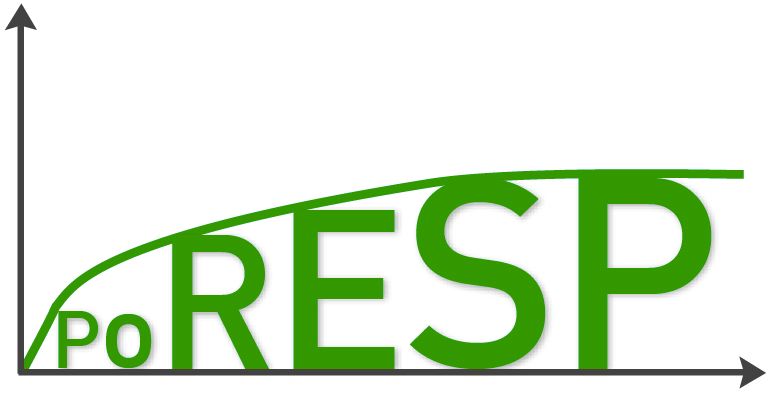
 The Project
The Project
 People
People
 Publications
Publications
 Work in
Progress
Work in
Progress  Scientific
Events
Scientific
Events  Collection
Collection
 Links
Links  Contact
Contact 
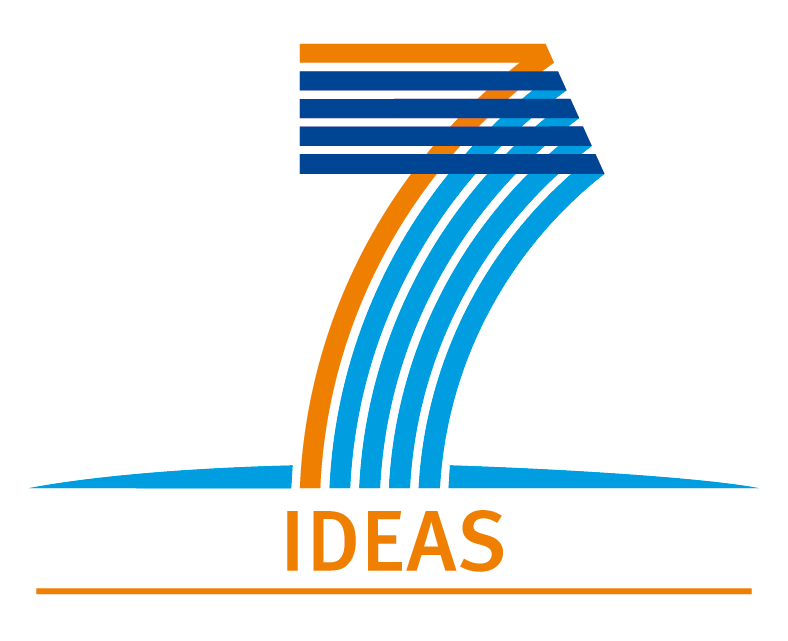
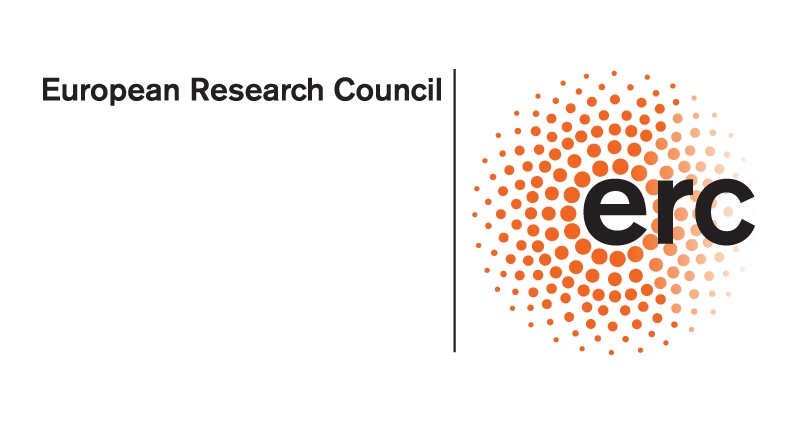
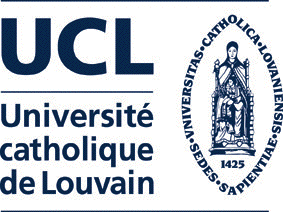
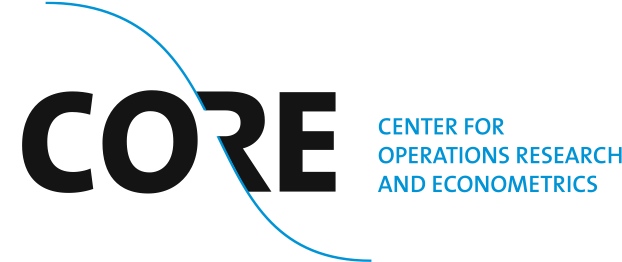

 The Project
The Project
 People
People
 Publications
Publications
 Work in
Progress
Work in
Progress  Scientific
Events
Scientific
Events  Collection
Collection
 Links
Links  Contact
Contact 



